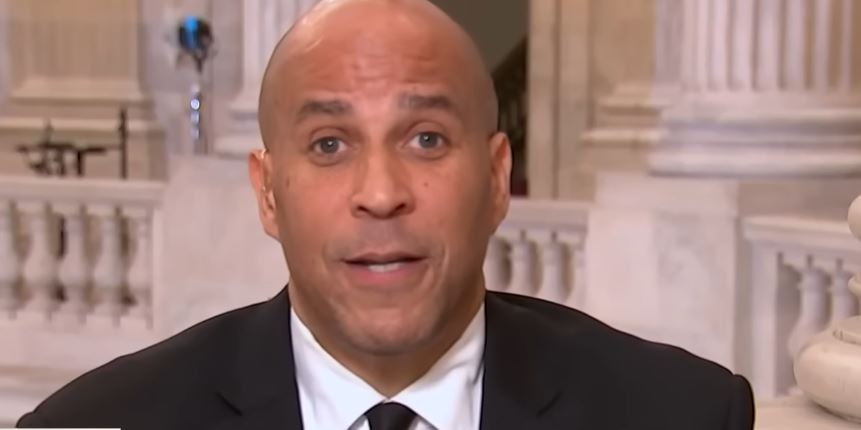Integrity, fortitude, and public service were not just lofty ideals for U.S. Senator Cory Booker; they were the very air he breathed at home. The boundaries of race, class, and corporate inclusion were reshaped by his parents, Carolyn and Cary Booker, who were not only among the first Black executives at IBM but also architects of a quiet revolution. Their particularly brave and inventive path prepared the way for one of the most articulate and sympathetic political voices in America.
His parents had already started moving up IBM’s competitive ladder by 1969, when Cory was born. However, they encountered a distinct form of opposition outside of the workplace. Because of the color of their skin, New Jersey real estate agents turned them down for a house despite their success. Instead of turning back, the Bookers pressed on, using their moral fortitude and legal advocacy in a move that would turn out to be incredibly successful in combating systemic prejudice.
Cory Booker – Bio Snapshot for WordPress
| Category | Details |
|---|---|
| Full Name | Cory Anthony Booker |
| Date of Birth | April 27, 1969 |
| Place of Birth | Washington, D.C., USA |
| Mother | Carolyn Rose Booker (née Jordan), IBM executive and community advocate |
| Father | Cary Alfred Booker (1936–2013), IBM executive and civil rights advocate |
| Education | Stanford University, Oxford (Rhodes Scholar), Yale Law School |
| Notable Roles | U.S. Senator (2013–present), Mayor of Newark (2006–2013) |
| Marital Status | Single; previously dated Rosario Dawson (2018–2022) |
| Siblings | Cary Booker II, John Taylor Booker |
Discrimination in Housing and a Strategic Reaction
IBM moved the Bookers to the New York region at the beginning of the 1970s. They set their sights on a house in the wealthy suburb of Harrington Park because they wanted to raise their sons in a better school district. However, what ought to have been a straightforward transaction turned into a civil rights battleground. Following several rejections, they sought the assistance of civil rights attorneys and a white couple to conduct a “test case,” which finally compelled the seller to comply.
Their family’s history was defined by that act of calculated disobedience. According to Cory, this experience—observing his parents systematically reveal discrimination—was crucial in forming his conception of justice. The Bookers demonstrated that institutional bias could be overcome by individual dignity through tactful opposition and unwavering perseverance.
Carolyn and Cary Booker: Taking Charge at Work and at Home
Raised by a single mother and family in the segregated South, Cary Booker blazed a remarkable trail. After joining IBM, he rose to become one of the top salespeople in the organization. His son was profoundly impacted by his journey, which was greatly influenced by a sense of purpose. Cory frequently relates how Cary would emphasize the value of being prepared, on time, and unfazed by hardship.
Carolyn, on the other hand, contributed her unique style of genius to her community and place of employment. She was a confident and well-spoken woman who actively supported equity in business culture and was a member of Delta Sigma Theta, a sorority with a long history of Black civic leadership. She taught Cory to value education, service, and emotional intelligence through thoughtful mentoring and volunteer work.
The Influence of Parental Models
The Bookers are unique not just because of their achievements but also because of how they applied those turning points. They saw success as a tool that was highly impactful and versatile rather than as a destination. Their narrative focused on paving the way for others, beginning with their sons, rather than merely shattering barriers.
We see a household that struck a balance between moral responsibility and corporate ambition through Cory’s perspective. Every Senate speech he gives, including the historic 25-hour filibuster in 2025, echoes their story. As fatigue threatened to overtake him during that speech, Booker recalled his parents. He declared, “I’m going to speak up more, even though my voice might shake.”
From Private to Public: The Bookers’ Persistent Impact
The tale of Cory Booker’s parents strikes a powerful chord in light of the current struggles for racial equity. More than just history, their journey exemplifies a change-management approach that is still applicable today. They exemplified a leadership model that is still remarkably evident and highly applicable by fusing civic bravery with professional excellence.
Booker’s ascent to prominence in American politics is not a singular occurrence. It is an extension of his family’s silent revolution, which was shaped by decades of modest but significant choices. There is a hint of Carolyn and Cary Booker’s legacy in every legislative bill he supports and every voice he elevates.


